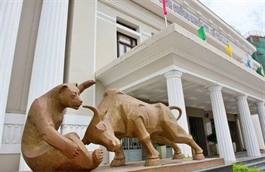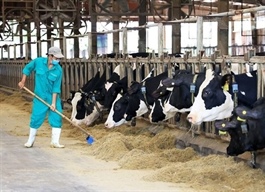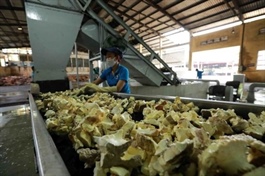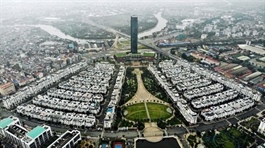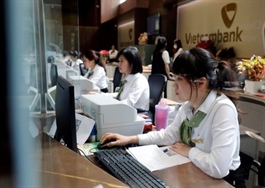Securities authority warns of delisted stock risks
Securities authority warns of delisted stock risks
The Department of Market Development at the State Securities Commission (SSC) issued a cautionary note to investors regarding the risks associated with delisted stocks on August 18.

The department emphasised that only companies with strong business performance and strict adherence to regulations can sustain long-term listings on the stock market.
The warning follows recent mandatory delistings and highlights the importance of understanding the regulations that govern such actions.
"Mandatory delisting contributes to a fair and transparent market environment. Only companies with solid business operations and legal compliance can remain listed for the long term," the department stated.
This regulatory approach aligns with practices in other developed markets. For instance, South Korea’s KOSPI market uses 11 criteria to evaluate mandatory delisting, while Japan applies six groups of criteria to ensure that only qualifying companies stay listed.
Investors were urged to thoroughly assess the market, financial health, and future prospects of companies before making decisions about stocks.
"Investors should exercise caution when selecting stocks, paying close attention to the company's overall legal compliance, particularly in relation to securities laws, as well as the adherence of its management team," the SSC advised.
Under current regulations, stocks that undergo mandatory delisting can still trade on the Unlisted Public Company Market (UPCoM) market, where the trading band of 15 per cent is more than double that of the Ho Chi Minh Stock Exchange's (HSX) 7 per cent. These stocks must trade on UPCoM for a minimum of two years before they can apply for relisting on the exchange, provided they meet all necessary conditions.
Recently, the HSX announced the mandatory delisting of two stocks: HBC of Hoa Binh Construction Group and HNG of Hoang Anh Gia Lai Agricultural International, effective from September 6. The delistings were prompted by years of poor financial performance.
Hoa Binh Construction Group reported a cumulative consolidated loss of VND3.24 trillion (approximately $130 million) by the end of 2023, surpassing its charter capital of VND2.74 trillion (around $110 million). The company has recorded losses for two consecutive years, worsened by a 'frozen' real estate market, which led to declining revenues and a surge in bad debts, requiring substantial provisions. Additionally, the company faced internal conflicts that further destabilised its operations.
Similarly, HNG has experienced three consecutive years of losses, with the parent company's shareholders recording post-tax losses of VND 1.12 trillion ($45 million) in 2021, VND 3.58 trillion ($143 million) in 2022, and VND 1.1 trillion ($44 million) in 2023.
Following the HSX announcement, both stocks experienced significant market volatility. In the first trading session after the news, HBC and HNG saw heavy sell-offs. HBC's stock price fell by more than 30 per cent in just over two weeks. HNG's stock also dropped by more than 20 per cent at one point, but has since rebounded.
In response, Hoa Binh Construction Group contested the grounds for its mandatory delisting in a letter to HSX. Meanwhile, Tran Ba Duong, chairman of HNG, had previously assured shareholders that the delisting scenario had been anticipated and was not a cause for concern.
"Despite the shift in trading venues, the company will maintain transparent information disclosure, and if managed well, the stock price could still see improvement," said Duong.






